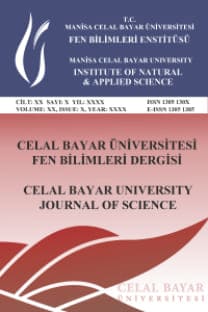Reducing Operational Fuel Costs of Airlines: A Model for Monitoring and Managing Fuel Consumption Using Unified Modeling Language
The economical balance of airline operators is fragile because of their presence in a highly competitive environment and high fixed and variable costs. The ability of airline companies to cope with high competition by providing economic equilibrium depends on operational efficiency. One of the major operational costs of airlines is fuel. Some of the reasons leading airlines to fuel economy are fuel prices and environmental factors. Airline operators have to control fuel consumption without falling outside the scope of operational procedures and safety rules. For this reason, airline operators are constantly looking for ways to reduce fuel costs, which is a key component of service delivery costs. At the beginning of this quest is to increase the effectiveness of the operational processes. In the first part of the study, the reasons leading airlines to fuel economy were examined. The second section, lists the ways in which airlines save fuel. In the last part, a fuel management model proposal was made using a unified model language to develop a computer software. At the end of the research, developed unified model will provide decision support for monitoring and managing fuel consumption and costs.
Keywords:
Fuel Economy in Aviation, UML modelling Decision Support System, Airline, Aircraft Operation,
___
- 1. Koopmans, C, Lieshout, R, Airline Cost Changes: To what extent are they passed through to the passaneger?, Journal of AirTransport Management, 2016, 53, 1-11.
- 2. Abdelghany, A, Abdelghany, K, Modeling Applications in the Airline Industry, Routledge: New York, 2016.
- 3. ICAO, Enviromental Report, ICAO, 2016.
- 4. ICAO, Enviromental Report, ICAO, 2007.
- 5. IATA, Climate Change Fact Sheet, IATA, 2016.
- 6. Dickson, N, Local Air Quality and ICAO Engine Emission Standarts. In Action Plan pn Emmission, Reduction, Kenya, 2014.
- 7. Lim, S.H, Hong, Y, Fuel hedging and airline operating costs, Journal of Air Transport Management, 2014, 36, 33-40.
- 8. Southwest's fuel gamble: Hedges keeps fares in check,abcnews.go.com, http://abcnews.go.com/Travel/ story?id=5918252&page=1, 2017 (accessed 20.05.2017).
- 9. Southwest Airlines and Cheap Oil: The Perfect Combination?,www.investopedia.com,http://www.investopedia.com/articles/markets/072715/southwest-airlines-and-cheap-oil-perfect-combination.asp, 2015 (accessed 21.05.2017).
- 10. Cento, A, The Airline Industry-Challenges in the 21st Century, Heidelberg, 2009.
- 11. Zou, B, Elke, M, Hansen, M, Kafle, N, Evaluating Air Carrier Fuel Efficiency in the US Airline Industry, Transportation Research Part A:Policy and Practice, 2014, 59, 306-330.
- 12. Yalçın Erik, N, Koşaroğlu, Ş.M., Tarihsel Süreç Boyunca Değişen Petrol Fiyatları, C.Ü. İktisadi ve İdari Bilimler Dergisi, 2016, 17(2), 119-143.
- 13. ATAG, Aviation Benefits Beyond Borders, 2016.
- 14. Delbari, S.A., Ng, I.S., Aziz, Y.A., Ho, J.A., An Investigation of Key Competitiveness Indicators and Drivers F Full Service Airlines Using Delphi and AHP Techniques, Journal of Air Transport Management, 2016, 52, 23-34.
- 15. Özmen, M, Using Pass-Through of Fuel Prices as Aproxy for Taxation Responses in the Aviation Industry, Gars Junior Researches, 2009, 5-7.
- 16. Kristjanpoller, W. D., and Concha, D., Impact of Fuel Price Fluctuations on Airline Stock Returns, Applied Energy, 2016, 178, 496-504.
- 17. Brueckner, J. K., and Abreu, C., Airline Fuel Usage and Carbon Emissions: Determining Factors, Journal of AirTransport Management, 2017,62,10-17.
- 18. Ryerson, m. S., and Kim, H., The Impact of Airline Mergers and Hub Reorganization on Aviation Fuel Consumption, Journal of Cleaner Production, 2014, 85, 395-407.
- ISSN: 1305-130X
- Başlangıç: 2005
- Yayıncı: Manisa Celal Bayar Üniversitesi Fen Bilimleri Enstitüsü
Sayıdaki Diğer Makaleler
İbrahim KESİCİ, Şeyma BİŞKİN, Alaa ELEYAN
Savaş Selahattin ATEŞ, Haşim KAFALI, Gökhan C. Kılıçoğlu
Histological and Histochemical Study on Stomach of Salamandra infraimmaculata (Amphibia: Urodela)
Genome-wide EST-SSR Marker Identification in Red Wiggler Worm Eisenia fetida (Savigny, 1826)
Electrospun Nanofibers Prepared with CdTe QDs, CdTeSe QDs and CdTe/CdS Core-Shell QDs
